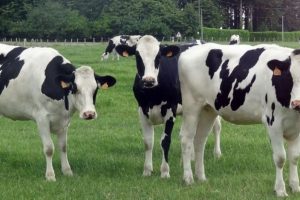A study to be published in November in the journal Biological Conservation has shown that pollinators are more present and stable when organic farming is implemented. According to the researchers, this type of farming promises a bright future for insects, and is preferable to conventional intensive farming.
Pollinators, big losers in conventional agriculture
For the past 40 years, we have observed a sharp decline in pollinating insects around the world. Today, the risk of their disappearance is very high. A 3-year study conducted by researchers at the University of Lund in Sweden shows that organic agriculture plays a major role in pollinator conservation.
Prior to this study, scientists already knew that organic farming allowed for a greater diversity of pollinators. However, they did not know whether this type of farming resulted in greater spatial and temporal stability of insects. This is why they specifically studied butterfly and bumblebee populations, which are representative of most pollinators.
How the experiment was conducted
In this study, the researchers studied the spatial and temporal stability of flowering insects (butterflies and bumblebees) as well as flowers and their blooms. The experiment took place on 9 conventional and 10 organic fields. The experiment lasted 3 years, in order to compare and identify the proliferation of insects according to the season, the type of crop and the presence or absence of floral cover.
What do the results of the study show?
The 3-year experiment showed that the number of bumblebees is greater in organic farming areas. Indeed, thanks to the greater availability of flowers and the absence of insecticides in these fields, the insects are much more present than in conventional crop areas. In addition, the bumblebee population was spatially and temporally stable. In contrast, the farming system had no effect on the richness of the butterfly populations.
The study also found that the spatial and temporal stability of butterflies and bumblebees was much better in organic fields. But it is not the presence of flowers that causes this. In fact, when flowers were present in conventional crop fields, bumblebees and butterflies were there – despite the presence of insecticides. Thus, the presence of flowers and organic farming contribute to the growth and stability of insects.
This study shows that organic farming improves the survival of pollinators, which are essential for the maintenance of our ecosystems. It therefore raises the question of a possible evolution of our farming methods.
Source : Sciencepost.fr




